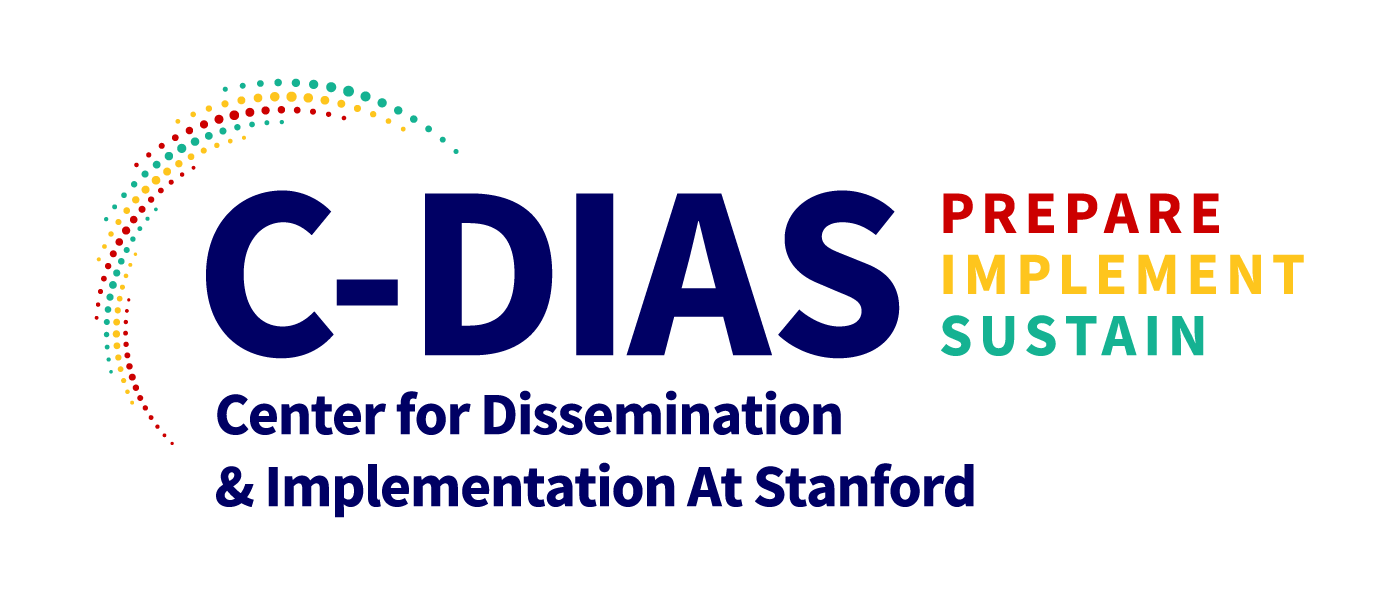Grand Rounds Presentations
AI-Enhanced Text Messaging for Behavioral Health: Designing the Next Generation of Digital Interventions
Rachel Kornfield, PhD | September 30, 2025 : Text messaging is a uniquely accessible way to deliver digital health interventions, offering high levels of reach and usability relative to most apps. When paired with cutting-edge machine learning techniques, text messaging can also be adaptive and highly personalized. In this talk, Dr. Kornfield will describe how…
Read MoreEvaluating the Reliability of Measures of Organizational Characteristics: Issues and Recommendations
Alex Sox-Harris, PhD, Kenneth Nieser, PhD | September 23, 2025 : Measures of organizational characteristics, such as implementation climate, organizational climate, and organizational culture play diverse roles in implementation studies. These characteristics can be conceptualized as contextual determinants of quality, moderators or mediators of implementation strategy effectiveness, or even implementation outcomes. It is therefore essential…
Read MoreFoundations for Improving Perinatal Mental Health Care Through A Statewide Birthing Hospital Quality Improvement Collaborative
Patricia Lee King, PhD, MSW | September 16, 2025 : Mental health conditions, including substance use disorders, are a leading cause of pregnancy-related deaths. One in five mothers experience depression or anxiety during pregnancy or postpartum and less than 10% receive adequate treatment. The Illinois Perinatal Quality Collaborative (ILPQC) facilitates collaborative learning opportunities, rapid-response data…
Read MoreHow Implementation Science Can Be Used To Support Change Efforts
Julia Moore, PhD | September 9, 2025: This workshop introduces the principles of implementation science and explores how they can help to plan, execute, and sustain change initiatives. Participants will learn practical approaches to bridge the gap between research and practice, overcome common barriers to change, and apply evidence-informed approaches to change initiatives.
Read MoreMethods for Rescuing Implementation Trials that Have Gone Off the Rails
Geoffrey Curran, PhD, JD Smith, PhD, Alison Hamilton, PhD | May 27, 2025: Implementation trials frequently run into unanticipated challenges which, if not successfully addressed, can threaten their integrity and derail implementation quality and speed. These problems, and potential solutions, remain largely tacit. In this panel, 4 principal investigators describe how their extramurally-funded implementation trials…
Read MoreMaintaining Efficacy while Adapting Contingency Management: State and Tribal Partnerships as Examples
Sara Parent, N.D., K. Michelle Peavy, Ph.D., Kait Hirchak Ph.D. | May 13, 2025: Contingency Management (CM) is an evidence-based behavioral intervention for substance use disorders that is receiving increasing attention as the most effective treatment available for stimulant use disorder. Decades of research have established its efficacy, and more recent Dissemination and Implementation Science…
Read MoreUnderstanding and Applying the HIV Self-Test Program Preferences of Black and Latino Sexual and Gender Minorities in the Southern United States: An Online Discrete Choice Experiment with Patients and CFIR Interviews with Providers
John Guigayoma, PhD | April 29, 2025 : Black and Latino sexual and gender minorities in the Southern United States have experienced the greatest burden of HIV for the past 25 years. HIV self-testing is an effective strategy to identify individuals living with undiagnosed HIV, but little implementation research is known about which program characteristics…
Read MoreFrom glitter to gold: Recommendations for effective dashboards from design through sustainment
Fernanda Sequeira Rossi, PhD | May 6, 2025: Dashboards—tools that compile and summarize key performance data—have become increasingly utilized for supporting data organization and decision-making processes across various fields, such as business, economics, healthcare, and policy. The dashboard’s impact is dependent on its use by the individuals for whom it was designed. Yet, few studies…
Read MoreA Mobile Approach to Empower Perinatal Women with Opioid Use Disorder and Enhance Neonatal Abstinence Syndrome Care
Ekaterina Burduli, PhD, MS | March 25, 2025: Substance use during pregnancy and parenthood presents significant public health challenges, with potentially severe consequences for mothers and infants with Neonatal Abstinence Syndrome (NAS). Addressing this issue requires innovative, comprehensive interventions and patient-centered approaches to improve care for perinatal women and families impacted by substance use disorders…
Read MoreDesigning for Dissemination: Building and Testing a Mobile App to Reduce Cannabis Use Among Justice-Involved Youth
Sarah Helseth, PhD | April 1, 2025: Dr. Helseth’s program of research seeks to increase equitable access to and utilization of effective interventions and health services, particularly among underserved populations and high-risk youth. She pursues this objective via several complementary lines of research that span from treatment development and evaluation to widespread dissemination and community-based…
Read More